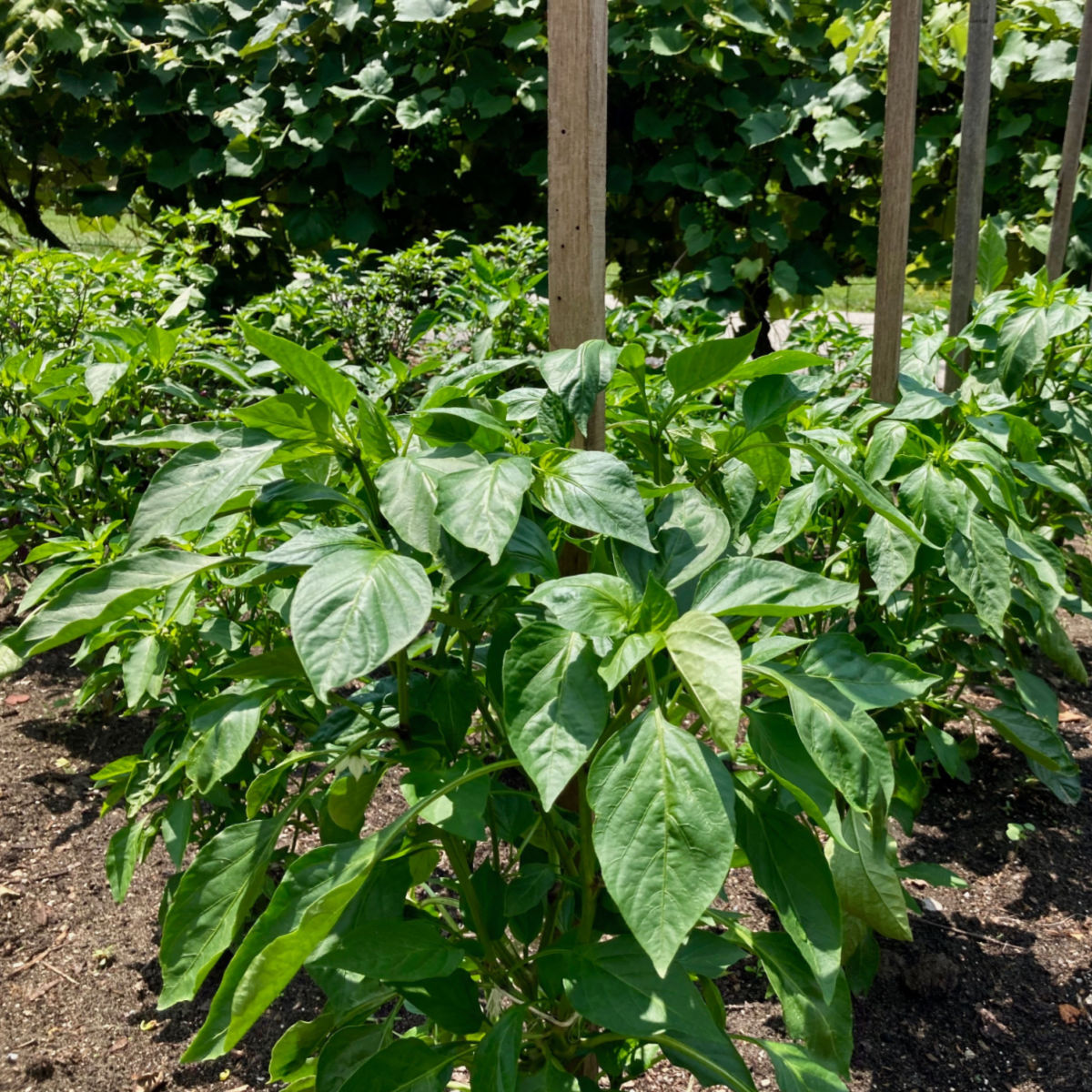Organic Vs. Synthetic Fertilizers: Which Is Best for Nurturing Healthy Pepper Plants?
In the world of supporting healthy pepper plants, the choice in between natural and artificial plant foods stands as an essential decision with far-reaching effects. While both choices objective to offer important nutrients to support plant development, the nuances of their effect on the dirt, plant health and wellness, and the environment trigger a dispute that echoes throughout the horticulture neighborhood. Understanding the distinct benefits and prospective pitfalls of each plant food type is essential for pepper growers looking for to maximize their returns while preserving an eco-conscious and lasting technique.
Benefits of Organic Plant Foods
Organic fertilizers use an environmentally-friendly and lasting method to beneficial pepper plants, offering important nutrients without the usage of synthetic chemicals. These all-natural fertilizers are acquired from organic resources such as compost, manure, bone meal, and algae, promoting dirt health and biodiversity. Unlike artificial fertilizers, natural options launch nutrients gradually, guaranteeing a constant and balanced supply for pepper plants to prosper.
One substantial benefit of organic plant foods is their capacity to improve soil framework and water retention. By enhancing dirt health and wellness, organic plant foods advertise advantageous microbial task, which assists in nutrient uptake by pepper plants. Additionally, organic plant foods reduce the risk of chemical run-off, shielding water sources from contamination and guarding the environment.
Additionally, organic plant foods add to long-term soil fertility by promoting the development of advantageous soil microorganisms. These microorganisms aid damage down raw material, releasing nutrients in a kind that is conveniently accessible to pepper plants. best fertilizers for peppers. By promoting a healthy and balanced dirt ecosystem, organic fertilizers support sustainable pepper cultivation practices that benefit both plants and the environment
Disadvantages of Artificial Plant Foods
Synthetic plant foods, in contrast to their natural counterparts, pose numerous downsides when utilized to nourish pepper plants, influencing both plant health and wellness and environmental sustainability. One significant downside of synthetic fertilizers is their propensity to seep nutrients from the soil promptly.
In addition, the overuse of synthetic fertilizers can add to water air pollution. Excess fertilizers not soaked up by plants can clean away right into water bodies, causing eutrophication, where algae blooms diminish oxygen levels in the water, damaging water life. Furthermore, artificial fertilizers are typically originated from non-renewable resources, such as fossil fuels, adding to carbon discharges and environmental deterioration throughout their production.
Nutrient Absorption Contrast
Effective nutrient absorption plays a critical role in the total health and development of pepper plants. When comparing natural and synthetic fertilizers in regards to nutrient absorption, natural fertilizers have the benefit of providing a much more well balanced and slow-release source of nutrients (best fertilizers for peppers). Organic fertilizers consist of a selection of macro and micronutrients that are not just advantageous for the plants however additionally promote healthy soil microbial task, which helps in nutrient uptake. On the various other hand, synthetic Check Out Your URL fertilizers commonly provide a quick release of nutrients, which can cause leaching and overflow, leading to reduced nutrient absorption prices by the plants.
Additionally, natural fertilizers enhance dirt structure and water retention capability, enabling pepper plants to gain access to nutrients a lot more successfully. This better dirt high quality assists in origin development, enabling much better nutrient absorption. Artificial plant foods, although at first improving plant growth because of their high nutrient concentrations, may prevent lasting nutrient absorption by degrading soil health and wellness over time.
Environmental Impact Considerations

On the other hand, artificial fertilizers, although frequently even more focused and right away available to plants, can have destructive impacts on the setting if not used appropriately (best fertilizers for peppers). Their production needs high energy inputs, bring about greenhouse gas discharges and adding to climate adjustment. Additionally, the drainage of excess synthetic plant foods can contaminate water resources, leading to eutrophication and hurting marine ecological communities.
Best Fertilizer Practices for Peppers
When feeding pepper plants, maximizing nutrient uptake and reducing ecological influence are key considerations. To accomplish this, it is vital to follow best fertilizer methods customized to the certain demands of pepper plants. One crucial practice is to carry out a dirt examination prior to using any kind of plant foods. This examination can establish the pH degree of the dirt and identify any nutrient deficiencies, guiding you in selecting the most ideal plant food solution.
An additional vital technique is to feed pepper plants at the ideal time. Normally, peppers gain from getting fertilizer at planting and then once more when they begin to flower. Over-fertilizing can lead to nutrient inequalities and hurt the plants, so it is crucial to follow recommended application prices.
Furthermore, choosing a well balanced plant food with an NPK proportion that fits pepper plants' requirements is basic. Organic plant foods, such as compost or manure, can be superb selections as they release nutrients slowly and boost dirt structure over time. Nonetheless, synthetic fertilizers can provide a fast nutrient boost when required. Ultimately, integrating organic and artificial plant foods sensibly can help support healthy pepper plants while lessening ecological impact.
Conclusion

Organic fertilizers use an environmentally-friendly and sustainable technique to beneficial pepper plants, providing necessary nutrients without the usage of synthetic chemicals. Unlike synthetic fertilizers, natural alternatives release nutrients slowly, making certain a steady and balanced supply for pepper plants to grow.
Artificial plant foods, in comparison to their natural equivalents, present different downsides when used to nourish pepper plants, influencing both plant health and environmental sustainability. When contrasting synthetic and organic fertilizers in terms of nutrient absorption, organic fertilizers have the advantage of offering a more balanced and slow-release source of nutrients.Moreover, organic fertilizers improve soil structure and water retention capability, enabling pepper plants to accessibility nutrients extra successfully.